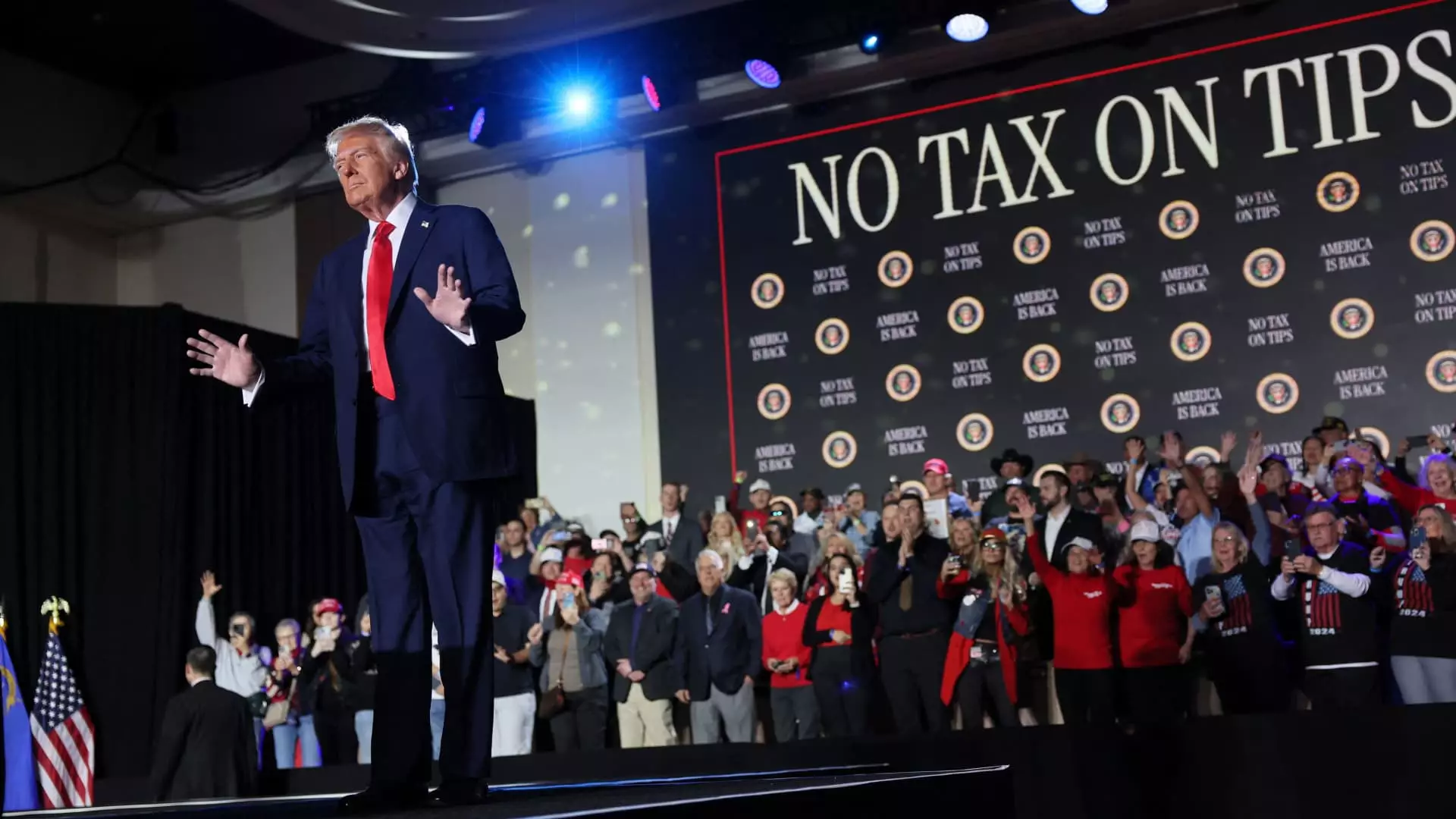This week, a surprising unity gripped the Senate as it unanimously passed the No Tax on Tips Act, a bill that aims to change how tipped workers are taxed. In an unexpected display of bipartisanship, this legislation could be the first step toward a tax code overhaul championed by President Trump during his 2024 campaign. While proponents herald this as a boon for American workers, the act’s intent and potential outcomes deserve a deeper examination. This legislation, promising tax breaks of up to $25,000 for certain workers, is positioned as a form of worker relief. Yet, beneath its favorable façade lies a host of contradictions that could undermine its purported benefits.
An Uneven Playing Field
The bill provides a federal income tax deduction for tips reported to employers, a framework that initially seems fair. After all, tipped workers—numbering around 4 million in the U.S.—often take on challenging jobs in restaurants, hotels, and other service sectors. However, it overlooks a critical fact: the majority of these workers are part-time employees or earn wages that already place them below the federal tax threshold. In light of this reality, the legislation appears to prioritize the interests of moderate to middle-income workers, leaving low-income earners without the supposed financial relief.
This approach to taxation creates a bifurcation within the workforce. Imagine two employees—both earning equivalent salaries. A waitress may receive substantial tips, while a retail cashier earns a similar wage without tips. The waitress could benefit from a significant tax exemption, while her colleague, doing equivalent work, stands to lose out purely based on the nature of the income they receive. Is this notion of fairness not a step backward in labor equality?
The Allure of Tips: A Double-Edged Sword
While the act creates a larger opportunity for moderate income earners, it carries with it certain pitfalls. The introduction of a no tax on tips policy could incentivize an even heavier reliance on tipping across various sectors, potentially shifting wage structures toward tip-dependent pay models. While it might seem appealing to envision enhanced financial flexibility for workers, it raises an uncomfortable question: should workers’ incomes be tethered to the whims of customers?
Moreover, the prospect of misclassification of income as tips to exploit tax benefits cannot be ignored. The bill might encourage a shadowy game where bonuses, incentives, and even sales commissions are disguised as tips, straying further from legitimate compensation. This would not only complicate tax enforcement but could also lead to disparities within businesses that do not follow this trend, causing chaos in an already convoluted system.
Undermining Broader Economic Fairness
One must ask: is it truly logical to give special treatment to specific income types, especially when tipping is steeped in social customs rather than strictly in economics? As outlined by policy analysts, treating tips differently from wages sets a precarious precedent. It could open the door to endless scenarios where different sectors push for their own exemptions, leading to a fragmented and confusing tax structure.
Such legislative confusion raises questions about all the nuances around workers’ rights, equity, and fairness within the labor market. A more balanced and nuanced approach would entail broad tax equity across income types, ensuring that every worker—regardless of their industry—faces a uniform taxation system.
The Harmful Implications on Social Dynamics
The No Tax on Tips Act, while well-intentioned, runs the risk of disguising poverty behind a veneer of economic relief. A tax bill that fails to consider the full scope of its implications can mask systemic inequalities, ultimately benefitting those who least need the support while leaving vulnerable households in the wake of its miscalculations.
What seems genuinely puzzling is how a piece of legislation aimed at uplifting workers can, paradoxically, exacerbate existing disparities. Rather than merely adjusting tax codes, our society must grapple with ensuring that every worker receives fair remuneration, devoid of the unpredictable and often inequitable nature of tipping. This act, while a step in a certain direction, begs the question: at what cost does this relief come, and whom does it truly serve?

